Algeria is a country located in North Africa, bordered by Tunisia to the northeast, Libya to the east, Niger to the southeast, Mali and Mauritania to the south, Western Sahara to the southwest, Morocco to the west, and the Mediterranean Sea to the north. It is the largest country in Africa and the Arab world, and it has a population of over 44 million people.
The history of Algeria is long and varied, with the country being inhabited by humans for at least 100,000 years. The earliest known inhabitants of Algeria were the indigenous Berber people, who have lived in the region for thousands of years. In the 8th century, Algeria was conquered by the Arab-Berber Muslim dynasty of the Aghlabids, who ruled the region until the 11th century. The country was later conquered by the Ottoman Empire, and it remained under Ottoman rule until the French colonization of Algeria in 1830.
During the French colonial period, Algeria was considered an integral part of France, and many French settlers moved to the country. However, the Algerian people resisted French rule and fought for independence. After a long and bloody struggle, Algeria gained its independence in 1962.
Since independence, Algeria has faced a number of challenges, including civil war, economic struggles, and political instability. However, it has also made significant progress, and today it is a major player in the Arab world. The country has a diversified economy, with a focus on oil and gas production, agriculture, and manufacturing. It is also home to a number of universities and research centres, and it has a strong cultural tradition, with a rich history and a vibrant arts scene.
One of the most interesting aspects of Algerian culture is its music. Algerian music is a mix of Arabic, Berber, and African influences, and it includes a wide variety of genres, from traditional folk music to modern pop and rock. Algerian music is known for its lively rhythms and melodies, and it is an important part of the country’s cultural identity.
Another important aspect of Algerian culture is its cuisine. Algerian food is a blend of Arabic, French, and African influences, and it is known for its use of spices and flavorful ingredients. Some of the most popular dishes in Algeria include couscous, a dish made from steamed semolina, and tajine, a slow-cooked stew made with meat and vegetables.
In terms of natural beauty, Algeria has much to offer. The country is home to several stunning landscapes, including the Sahara Desert, the Atlas Mountains, and the Mediterranean coast. The Sahara Desert, in particular, is a major attraction for visitors, with its vast expanses of sand dunes and breathtaking sunsets.
Overall, Algeria is a fascinating and diverse country with a rich history and culture. From its music and cuisine to its natural beauty and cultural heritage, there is much to discover and explore in this North African nation.
Where is Algeria?
Algeria is a country located in North Africa. It is bordered by Morocco to the west, Tunisia and Libya to the east, Niger and Mali to the south, and the Mediterranean Sea to the north. The capital of Algeria is Algiers, and the country is home to a diverse population of over 44 million people. Algeria is the largest country in Africa and the Arab world, and it is known for its rich history, beautiful landscapes, and cultural diversity.
What is Algeria known for?
Algeria is known for a number of things, including its rich history, cultural diversity, and beautiful landscapes. Some of the specific things that Algeria is known for include:
Oil and Gas: Algeria is a major oil and gas producer, and these industries have played a significant role in the country’s economy.
Ancient Cities: Algeria is home to many ancient cities, including Timgad and Djemila, which are both recognized as UNESCO World Heritage Sites.
Desert Landscapes: Algeria is home to a number of beautiful desert landscapes, including the Sahara Desert, which is the largest hot desert in the world.
Cultural Diversity: Algeria is home to a diverse population, with a variety of ethnic groups, languages, and religions. The country is known for its cultural diversity, which is reflected in its art, music, and cuisine.
Cuisine: Algeria is known for its flavorful and diverse cuisine, which is influenced by a variety of cultural influences. Some popular dishes include couscous, tajine, and merguez sausage.
Sports: Algeria is known for its success in international sports, particularly soccer. The country has a strong national team and has performed well in international tournaments.
Overall, Algeria is a country with a rich and diverse culture, and it is known for its beautiful landscapes, ancient cities, and contributions to the oil and gas industry.
What is Culture in Algeria?
Culture in Algeria refers to the diverse customs, traditions, and ways of life that are practised by the people of Algeria. Algeria has a rich and diverse culture that has been influenced by several factors, including its location in North Africa, its history, and the various ethnic groups that make up its population.
Some of the key elements of Algerian culture include:
Language: Arabic is the official language of Algeria, but many people also speak French, which is widely used in education and business. There are also many regional dialects spoken throughout the country.
Religion: The majority of people in Algeria are Muslims, and Islam plays a significant role in the country’s culture. However, there are also small communities of Christians and Jews in Algeria.
Family: Family is an important aspect of Algerian culture, and extended families are often close-knit and play a central role in daily life.
Food: Algerian cuisine is known for its flavorful and diverse dishes, which are influenced by a variety of cultural influences. Popular dishes include couscous, tajine, and merguez sausage.
Music: Algeria has a rich tradition of music, which includes a variety of genres such as chaabi, raï, and Andalusian classical music.
Art: Algerian art is diverse and includes a variety of forms such as painting, sculpture, and traditional crafts.
Overall, Algerian culture is a unique blend of different influences, and it is shaped by the country’s history, religion, and the diverse ethnic groups that make up its population.
What is the weather, Climate and season in Algeria?
The weather and climate in Algeria vary depending on the region. In general, the country has a Mediterranean climate in the north, with hot, dry summers and mild, wet winters. The central and southern parts of the country have a desert climate, with hot, dry summers and mild to cool winters.
The weather in Algeria is generally hottest from June to September, with temperatures reaching up to 40°C (104°F) in some parts of the country. The winter months, from November to February, are generally cooler, with temperatures ranging from 10-20°C (50-68°F). The coastal regions of the country tend to be cooler and more humid than the inland areas.
Algeria has two main seasons: a hot, dry summer and a mild, wet winter. The summer season is characterized by hot, dry weather, while the winter season is marked by cooler temperatures and occasional rain. The coastal regions of the country tend to have more moderate temperatures and higher humidity levels throughout the year.
Overall, the weather and climate in Algeria vary depending on the region, with the north having a Mediterranean climate and the central and southern regions having a desert climate. The country experiences hot, dry summers and mild to cool winters, with the coastal regions tending to be cooler and more humid than the inland areas.
How to get my visa for Algeria?
To get a visa for Algeria, you will need to follow a few steps:
Determine the type of visa you need: There are several types of visas available for Algeria, including tourist visas, business visas, and student visas. Determine the type of visa you need based on the purpose of your visit.
Check the requirements: Depending on the type of visa you need and your country of citizenship, there may be specific requirements that you need to meet. These may include documents such as a passport, proof of residence, proof of financial means, and a letter of invitation.
Apply for a visa: You can apply for a visa for Algeria at the nearest Algerian embassy or consulate. You will need to complete the visa application form, provide the required documents, and pay the visa fee. You may also be required to attend an interview.
Wait for your visa to be processed: It can take several weeks for your visa to be processed, so make sure to apply well in advance of your planned trip.
Overall, the process for getting a visa for Algeria can vary depending on your country of citizenship and the type of visa you need. Make sure to research the requirements and follow the steps carefully to ensure a smooth and successful visa application process.
Is the country politically safe and stable?
Algeria is a country that has experienced several political and social challenges in recent years. While it is generally considered to be politically stable, there have been instances of political unrest and protests in the country.
In recent years, Algeria has experienced a number of significant political events, including the Arab Spring protests in 2011 and the fall of long-time President Abdelaziz Bouteflika in 2019. These events led to widespread protests and demonstrations, and the country has been in a state of political transition since then.
Despite these challenges, Algeria is generally considered to be politically stable, and the government has taken steps to address some of the issues that have caused unrest in the past. However, it is always important to stay informed about the political situation in any country you are planning to visit and to follow the advice of local authorities and your embassy or consulate.
Overall, while Algeria has experienced some political challenges in recent years, it is generally considered to be a politically stable country. However, as with any country, it is important to stay informed about the current political situation and to follow the advice of local authorities when travelling.
When’s the best time to visit Algeria?
The best time to visit Algeria depends on your interests and the type of weather you prefer. Here are a few things to consider:
Climate: Algeria has a Mediterranean climate in the north and a desert climate in the central and southern parts of the country. If you prefer cooler temperatures and want to avoid the hottest weather, the best time to visit would be in the spring (March to May) or fall (September to November). These seasons offer comfortable temperatures and lower humidity levels.
Festivals and events: Algeria has a number of festivals and events throughout the year, including cultural festivals, religious festivals, and sporting events. If you are interested in experiencing some of these events, you may want to plan your trip around a particular festival or event.
Tourist season: The tourist season in Algeria generally runs from June to September, when the weather is warm and dry. This is a popular time for tourists to visit the country, and you may find that prices for accommodation and transportation are higher during this time.
The best time to visit Algeria depends on your personal preferences and the type of activities you are interested in. If you prefer cooler temperatures and lower humidity levels, spring and fall may be the best times to visit. If you want to experience some of the country’s festivals and events, you may want to plan your trip around a specific event. Regardless of when you visit, Algeria has a lot to offer and is a beautiful and interesting destination to explore.
The best places to Travel in Algeria?
Algeria is a beautiful and diverse country with a lot to offer travellers. Here are a few of the best places to visit in Algeria:
Algiers: The capital of Algeria, Algiers is a vibrant city with a rich history and a mix of modern and traditional architecture. It is home to several landmarks, including the Kasbah of Algiers and the National Liberation Front Museum.
Oran: Located on the Mediterranean coast, Oran is a bustling port city with a rich cultural heritage. It is known for its vibrant music and art scenes, as well as its beautiful beaches.
Constantine: Located in the north of the country, Constantine is known for its stunning natural surroundings and its historic sites. The city is surrounded by the beautiful Djurdjura Mountains and is home to many landmarks, including the Pont Sidi M’Cid bridge and the Maqam Echahid memorial.
Tamanrasset: Located in the Sahara Desert, Tamanrasset is a gateway to the beautiful desert landscape of southern Algeria. It is a great place to go on a desert safari or visit the Assekrem mountain peak.
Annaba: Located on the Mediterranean coast, Annaba is known for its beautiful beaches and its rich history. It is home to several landmarks, including the Basilica of St. Augustine and the Sidi Fredj Lighthouse.
Overall, Algeria is a beautiful and diverse country with a lot to offer travellers. Whether you are interested in exploring vibrant cities, beautiful beaches, or stunning natural landscapes, there is something for everyone in Algeria.
How many days should I spend in Algeria?
The amount of time you should spend in Albania depends on your interests and the activities you want to do while you’re there. Albania has a rich history, beautiful natural landscapes, and a diverse culture, so there is a lot to see and do. Some popular tourist destinations in Albania include the capital city of Tirana, the coastal city of Durres, and the ancient city of Berat.
If you want to experience the country’s history and culture, you could plan to spend at least a few days in Tirana, where you can visit museums, explore the city’s vibrant nightlife, and visit landmarks such as the Et’hem Bey Mosque and the Skanderbeg Square. Durres, which is located on the Adriatic Sea, is known for its beautiful beaches and ancient Roman ruins and is a great place to relax and enjoy the Mediterranean climate. Berat, known as the “city of a thousand windows,” is home to a well-preserved castle and several historic mosques, churches, and monasteries, making it a must-see destination for history buffs.
If you’re interested in outdoor activities, you could spend a few days exploring the Albanian Alps, which offer hiking, climbing, and rafting opportunities. The country also has several beautiful beaches and resorts, so you could plan to spend some time relaxing by the sea.
Ultimately, the amount of time you should spend in Albania depends on your interests and the activities you want to do while you’re there. It’s a good idea to create a rough itinerary and plan out the amount of time you want to spend in each location to make the most of your trip.
Do I need travel insurance for Algeria?
It is generally a good idea to purchase travel insurance whenever you travel, and Algeria is no exception. Travel insurance can provide financial protection in case of unexpected events such as trip cancellations, medical emergencies, lost luggage, or travel delays.
There are several risks to consider when travelling to Algeria, including the risk of terrorist attacks, crime, and civil unrest. While these risks may not be specific to Algeria, it is important to be aware of them and take precautions to protect yourself and your belongings. Travel insurance can help cover the costs of an emergency evacuation or medical treatment in the event of a terrorist attack or another emergency.
In addition to these risks, Algeria has a high rate of traffic accidents, so it is important to be careful when travelling by car. Travel insurance can provide coverage for medical treatment and transportation in the event of a car accident.
purchasing travel insurance is a good idea to protect yourself and your investment in your trip to Algeria. It is important to carefully review the terms and conditions of your travel insurance policy to make sure it meets your needs and covers the types of risks you may encounter while travelling in Algeria.
Do people speak English?
English is not widely spoken in Algeria, as it is not one of the official languages of the country. The official languages of Algeria are Arabic and Berber. However, many young people in Algeria speak some English, as it is taught in schools. In tourist areas and hotels, you may find that English is more widely spoken, but it is still a good idea to have a basic knowledge of Arabic or French, as these languages are more commonly used in Algeria.
If you are planning to travel to Algeria and are not fluent in Arabic or French, it is a good idea to bring a phrasebook or download a translation app to help you communicate with locals. You may also want to consider hiring a guide or translator to help you navigate the country and communicate with locals.
Overall, while English may not be widely spoken in Algeria, you may still be able to find people who speak it in tourist areas and hotels, and it is always a good idea to have some basic language skills and resources to help you communicate with locals during your trip.
What food do I get to eat? What should I avoid (if any)?
Algerian cuisine is a mix of Mediterranean, Middle Eastern, and African influences, and it is known for its flavorful dishes and rich, aromatic spices. Some popular Algerian dishes include couscous, a type of grain that is often served with vegetables and meat, and tajine, a slow-cooked stew made with meat, vegetables, and spices. Algerian cuisine also includes a variety of grilled meats, such as kebabs and lamb, and a variety of seafood dishes, including grilled fish and octopus.
Vegetables and legumes, such as chickpeas and lentils, are also commonly used in Algerian cooking. Bread is a staple of the Algerian diet, and a variety of bread, such as flatbreads and pita bread, are served with meals.
When dining out in Algeria, it is generally safe to eat food that has been cooked and served hot. It is a good idea to avoid eating raw or undercooked meats, as these can increase your risk of food poisoning. It is also a good idea to avoid drinking tap water, as it may not be safe to drink. Bottled water is widely available in Algeria, and it is a good idea to drink bottled water to reduce your risk of getting sick.
Algerian cuisine is diverse and flavorful, and there are many dishes to try and enjoy during your trip. It is a good idea to be cautious when eating and drinking to reduce your risk of getting sick, but there are plenty of delicious and safe options available.
Is Algeria safe for female travellers?
Like any country, Algeria has its own unique set of risks and potential challenges that female travellers should be aware of. While Algeria is generally safe for female travellers, it is important to take precautions to protect yourself and to be aware of local customs and cultural norms.
One potential risk for female travellers in Algeria is street harassment and sexual harassment, which can occur in crowded places or when walking alone in certain areas. It is a good idea to dress modestly and to avoid walking alone at night or in deserted areas to reduce your risk of harassment.
Another risk to consider is the potential for crime, such as pickpocketing and robbery, especially in crowded areas or on public transportation. It is a good idea to be aware of your surroundings and to keep your valuables secure to reduce your risk of theft.
In addition, it is important to be aware of local customs and cultural norms in Algeria. Women are expected to dress modestly and to cover their heads in some areas, especially when visiting mosques or other religious sites. It is a good idea to research local customs before your trip and to be respectful of local traditions and beliefs.
Overall, Algeria is generally safe for female travellers, but it is important to take precautions to protect yourself and to be aware of local customs and cultural norms. It is also a good idea to purchase travel insurance to provide financial protection in case of unexpected events such as medical emergencies or trip cancellations.

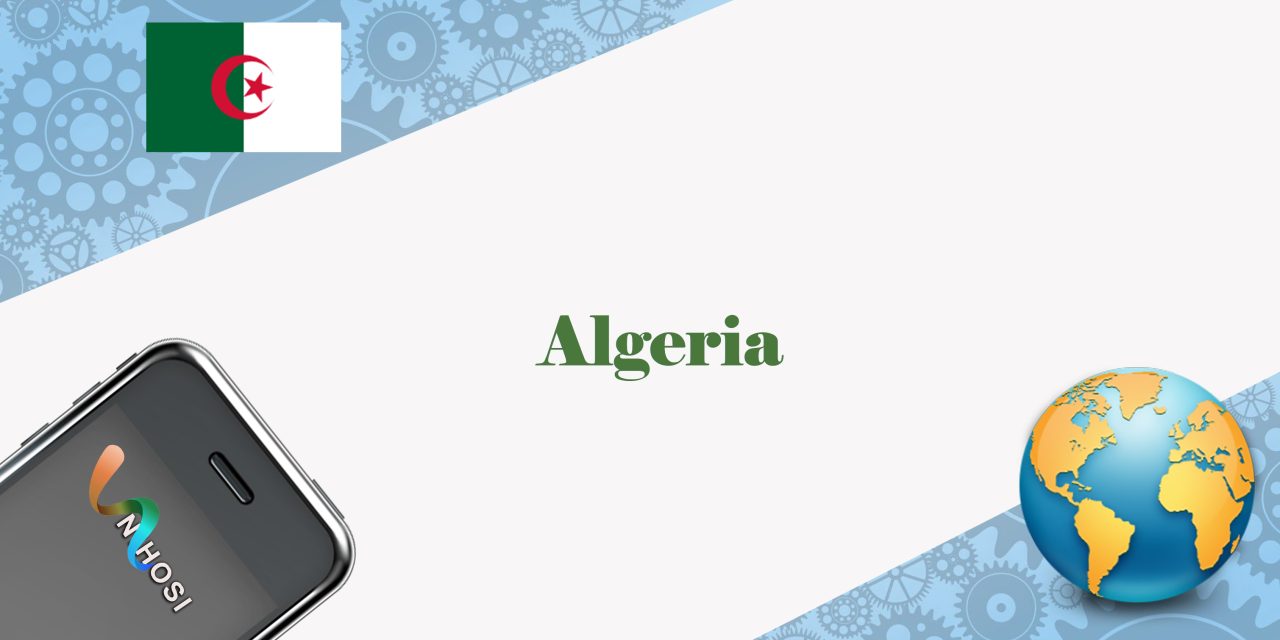
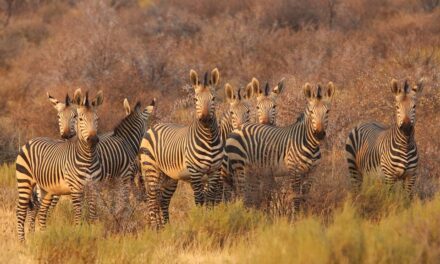
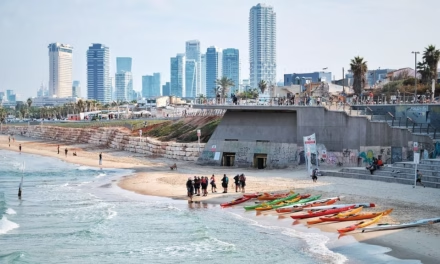

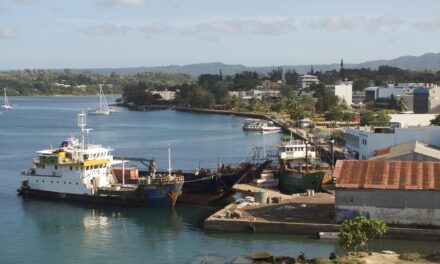

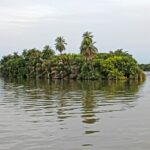


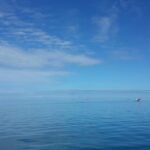

Subscribe To Our Newsletter
Join our mailing list to receive the latest news and updates from our team.
You have Successfully Subscribed!